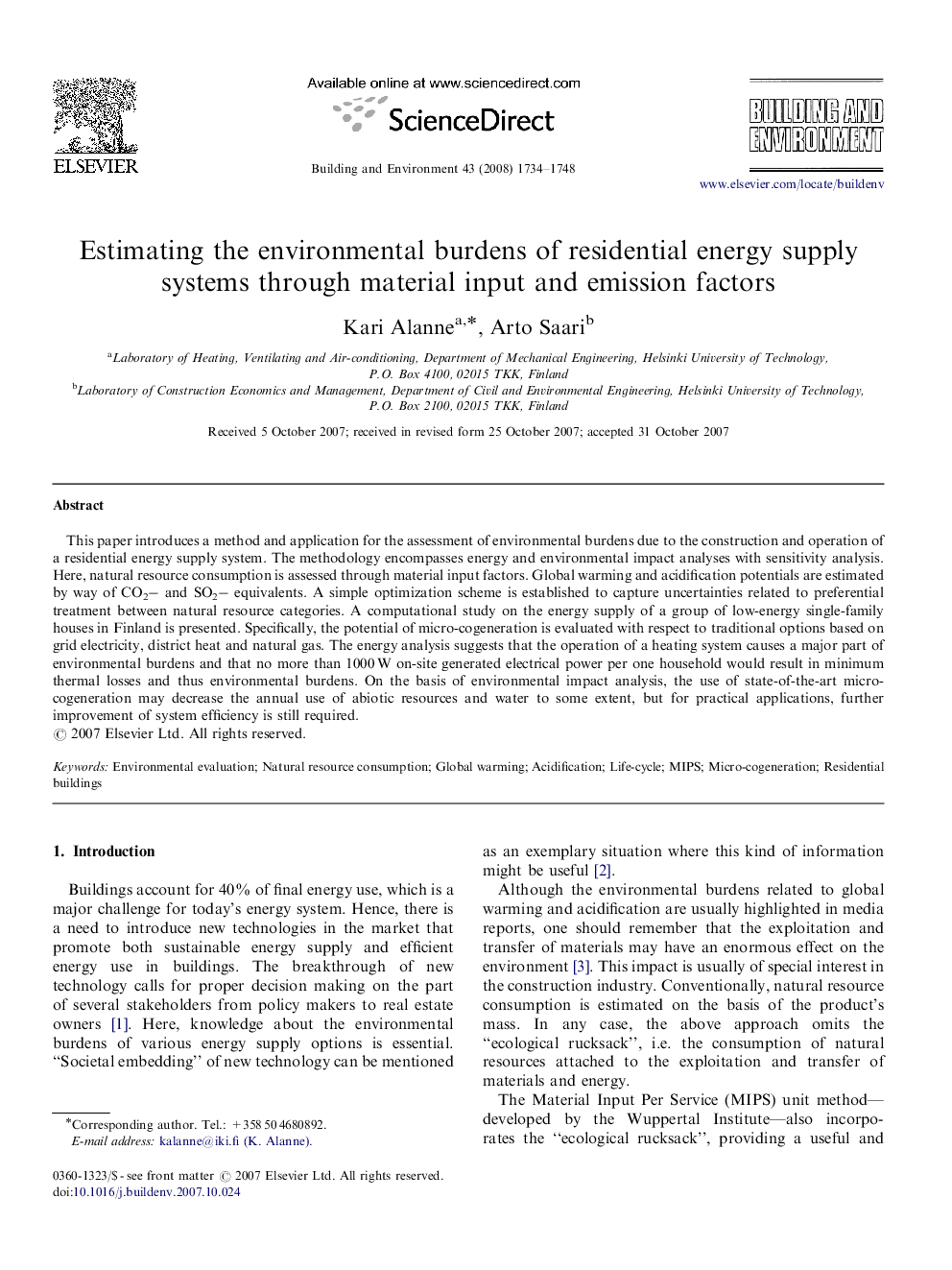| Article ID | Journal | Published Year | Pages | File Type |
|---|---|---|---|---|
| 249761 | Building and Environment | 2008 | 15 Pages |
This paper introduces a method and application for the assessment of environmental burdens due to the construction and operation of a residential energy supply system. The methodology encompasses energy and environmental impact analyses with sensitivity analysis. Here, natural resource consumption is assessed through material input factors. Global warming and acidification potentials are estimated by way of CO2− and SO2− equivalents. A simple optimization scheme is established to capture uncertainties related to preferential treatment between natural resource categories. A computational study on the energy supply of a group of low-energy single-family houses in Finland is presented. Specifically, the potential of micro-cogeneration is evaluated with respect to traditional options based on grid electricity, district heat and natural gas. The energy analysis suggests that the operation of a heating system causes a major part of environmental burdens and that no more than 1000 W on-site generated electrical power per one household would result in minimum thermal losses and thus environmental burdens. On the basis of environmental impact analysis, the use of state-of-the-art micro-cogeneration may decrease the annual use of abiotic resources and water to some extent, but for practical applications, further improvement of system efficiency is still required.
